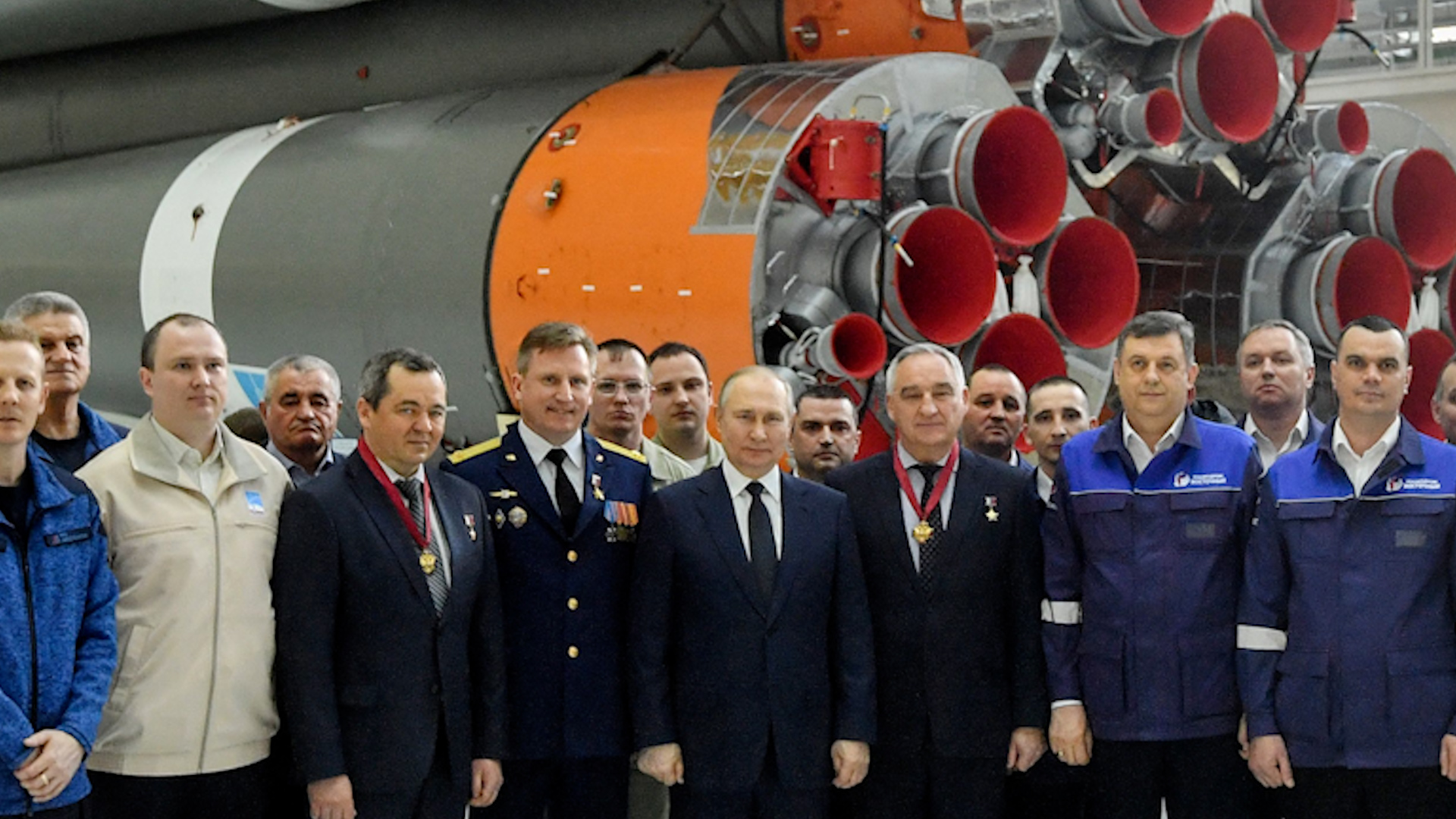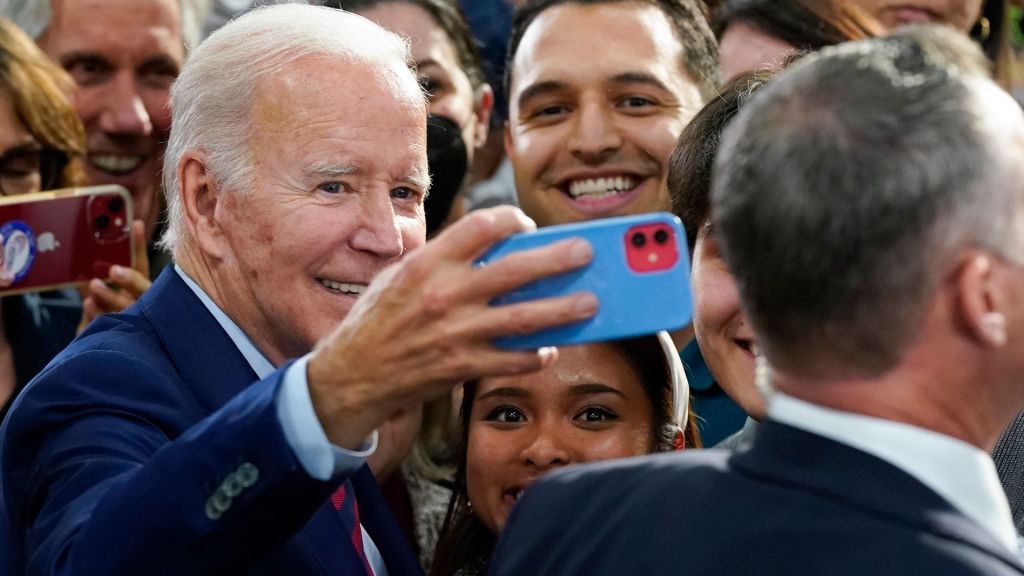
[RYAN ROBERTSON]
SOOO… REMEMBER BACK IN FEBRUARY WHEN OHIO CONGRESSMAN MICHAEL TURNER …LET’S JUST SAY RAISED SOME EYEBROWS, AND PROBABLY A FEW ALARMS, WHEN HE SAID ON NBC’S ‘MEET THE PRESS’ THAT RUSSIA WAS MOVING TO MAKE A SPACE-BASED NUCLEAR WEAPON A REALITY.
FOR THEIR PART THE RUSSIANS SAID THAT WASSN’T THE CASE, INSTEAD CALLING THE STATEMENTS A PLOY TO PRESSURE RUSSIA INTO ARMS NEGOTIATIONS WITH THE WEST.
WHEREVER THE TRUTH FALLS, THE IDEA ALONE CAUSED MANY IN THE U.S. TO WONDER ALOUD ‘WELL, WHAT IF..?’ WHAT IF RUSSIA HAD SPACE NUKES?TO EXPLORE THAT QUESTION WE RECENTLY TALKED TO THREE UNIVERSITY PROFESSORS, ALL OF WHOM HAVE AN EXCELLENT GRASP ON “WHAT IF..?” TO SEE IF ANY OF THIS KEEPS THEM UP AT NIGHT.
FOR MOST OF US LAYPEOPLE…THE IDEA OF LAUNCHING WEAPONS MEASURED IN KILOTONS FROM THE VASTNESS OF SPACE, OR KNOCKING OUT ENTIRE SATELLITE NETWORKS, SOUNDS LIKE SOMETHING STRAIGHT OUT OF A JAMES BOND MOVIE. BUT REST ASSURED–THE EXPERTS THINK SO TOO
[Dr. Tyler White, Assoc. Prof. of Practice & Dir. Natl. Security Prog., Univ. of Nebraska]
“It reminds me of GoldenEye. Right. I think this is something that that other outlets just sort of picked up on where they can, they could use an EMP device or something like that to render the electronics, a lot of these satellites which are fragile, oftentimes very fragile instruments in and of themselves useless.”
[RYAN ROBERTSON]
RUSSIA USING NUCLEAR DEVICES IN SPACE COULD COME IN ONE OF A FEW DIFFERENT WAYS, AND NUCLEAR POWERED SPACE LASERS…AREN’T ONE OF THEM. AT LEAST NOT YET. RUSSIA COULD LAUNCH NUKES AT EARTH BOUND TARGETS FROM A SPACE BASED PLATFORM LIKE A SATELLITE…BUT ICBMs COULD ACHIEVE THE SAME RESULT. RUSSIA COULD DETONATE A NUKE IN THE ATMOSPHERE–KNOCKING OUT ANYTHING ELECTRONIC OVER ENTIRE CONTINENTS…CAUSING MASS PANIC AND POTENTIAL SOCIETAL COLLAPSE…BUT AGAIN, MISSILES COULD DO THE SAME THING.
WHILE THE EXISTENCE OF SOME OF THIS TECHNOLOGY, AND WHETHER RUSSIA WOULD USE IT…IS CERTAINLY UP FOR DEBATE…THE CONCERNS THESE DEBATES GENERATE ARE VALID. BUT THE EXPERTS SAY WE NEED TO TEMPER ANY EXPECTATIONS OR PROGNOSTICATIONS WITH WHAT WE ALREADY KNOW TO BE TRUE.
[Jack Beard, Assoc. Prof. Of Law & Dir., Space, Cyber, & Natl. Security Law Prog., University of Neb.]
“There’s talk, of course of the Russians violating the Outer Space Treaty. And this is the end of the Outer Space Treaty and all that. That’s, that’s premature, not only have they not actually done this yet, but the Soviet Union designed a large part of the Outer Space Treaty.”
[RYAN ROBERTSON]
AND THAT’S A REASON RUSSIA MIGHT NOT WANT TO TAKE PART IN WHAT REPRESENTATIVE TURNER SAYS THEY COULD BE PLANNING. FOR EVERYTHING THAT’S UNPREDICTABLE ABOUT VLADIMIR PUTIN, HE DOES TEND TO FAVOR WHATEVER HOLDEVERS STILL EXIST FROM THE SOVIET UNION.
[Elsbeth Magilton, Dir. of Space, Cyber & Security Law]
“My sense is that as a state that is certainly not in Russia’s interest, and that a lot of their behaviors seem to still be interested in maintaining some of those alliances, particularly with China.”
[RYAN ROBERTSON]
ELSBETH MAGILTON, JACK BEARD AND DR. TYLER WHITE’S EXPERTISE COLLIDES AT THE AVENUES OF LAW, NATIONAL SECURITY, AND CYBER SECURITY, MAKING THEM ALL WELL QUALIFIED WHEN IT COMES TO TALKING ABOUT NEW THREATS FROM AMERICA’S OLDEST ADVERSARIES.
FOR MOST SANE PEOPLE–SUBJECTS LIKE A RUSSIAN NUCLEAR THREAT FROM SPACE IS UNSETTLING TO SAY THE LEAST. A FEELING MAGILTON SAYS SHE’S NOT IMMUNE TO. SHE ALSO SAYS PERSPECTIVE IS IMPORTANT.
[Elsbeth Magilton, Dir. of Space, Cyber & Security Law]
“When you start working in security and in defense, that notion that we were always so secure, my whole life kind of goes away, and you realize how tenuous it always is, and always has been. And somehow that makes you feel a little bit better, because you realize that we’ve always been walking this line, and yes, that’s scary. But I’ve been safe up until now. And so maybe it’s not as bleak as it feels in these moments.”
[RYAN ROBERTSON]
WHILE TURNER’S COMMENTS GRABBED A LOT OF HEADLINES, THERE WAS OTHER NEWS REGARDING RUSSIA AND SPACE. SPECIFICALLY THEIR PLANS TO BUILD A NUCLEAR POWER PLANT WITH THE CHINESE. A PLANT THAT WOULD POWER THEIR SETTLEMENTS ON THE MOON. SOMETHING JACK BEARD SAYS COULD BE A MUCH BIGGER ISSUE FOR U.S. INTERESTS.
[Jack Beard, Assoc. Prof. Of Law & Dir., Space, Cyber, & Natl. Security Law Prog., University of Neb.]
“Well, competition on the moon for scarce resources is, is probably a more formidable threat. Near term. I mean, we’re talking about putting people there and using the space resources. And this I’m not aware of any time in history where humans haven’t gotten to some part of this planet, found scarce resources had companies come and want them. And they don’t get into conflict with other countries about the resources.”
[RYAN ROBERTSON]
FOR TYLER WHITE, THE CONCERNS IN SPACE, AT LEAST IN PART, STEM FROM CONCERNS THAT ARE MORE EARTHBOUND.
[Dr. Tyler White, Assoc. Prof. of Practice & Dir. Natl. Security Prog., Univ. of Nebraska]
“I worry about the future of NATO, which I think has been an unbelievably productive and, and incredibly important thing in the history of human humankind, right. I mean, a defensive alliance like this, it’s this lasted this long, because, you know, the challenges posed by China, the challenges posed by Russia, those things become much easier to handle when you are in a reliable relationship with regional partners. And there’s, there’s more uncertainty around the future of those relationships, and most of its coming from the United States.”
[RYAN ROBERTSON]
WHILE THERE ARE NO EASY, OR IMMINENT ANSWERS TO MANY, IF NOT ALL, OF THESE CONCERNS, MAGILTON SAYS THE FACT THAT AMERICAN ASTRONAUTS, AND RUSSIAN COSMONAUTS, ARE LIVING AND WORKING TOGETHER RIGHT NOW ON THE INTERNATIONAL SPACE STATION, IS A POSITIVE.
AND MAYBE THAT’S ENOUGH TO ALLOW YOU TO GET A LITTLE SLEEP TONIGHT.







